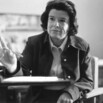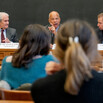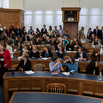Playing the Long Game
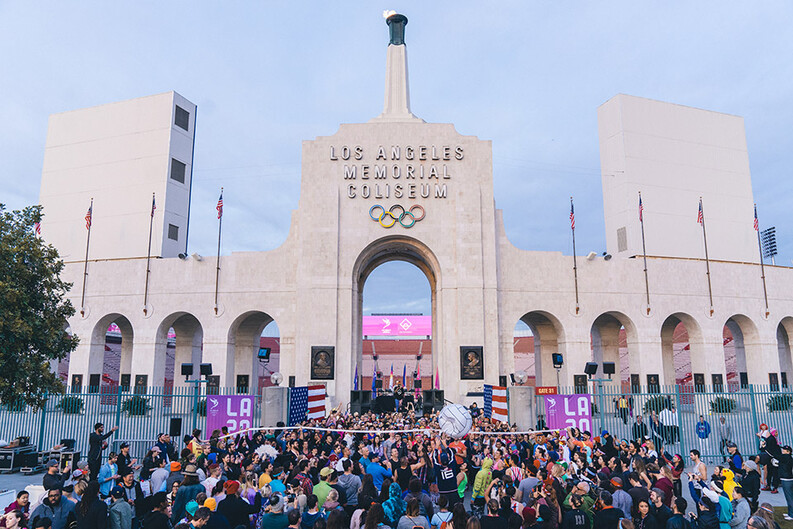
Four Yale Law School Alumni Come Together to Help Bring the 2028 Summer Olympics to Los Angeles
At 12:37 a.m. on the morning of July 31, 2017, Brian Nelson ’04 sent an email to Manav Kumar ’09. It contained just a single word and corresponding exclamation point: “Done!”
He didn’t need to say more. For two years, the pair had been working almost exclusively in pursuit of a shared goal—bringing the 2024 Summer Olympic and Paralympic Games to Los Angeles. Nelson was the general counsel for the city’s Olympic and Paralympic Bid Committee; Kumar was deputy counsel and chief Olympics officer for Los Angeles Mayor Eric Garcetti.
In the early hours of that July day, it became clear that they had succeeded—although not in the way they originally intended. The Summer Olympics would return to Los Angeles—the city had also hosted the Games in 1932 and 1984—but not until 2028. In an unprecedented move, the International Olympic Committee (IOC) had voted unanimously to award the Games to two cities at once: Paris, also a two-time previous host, would receive the 2024 Games; Angelenos would wait four more years for the rings to arrive (their patience—and the deal-making skills of Kumar, Nelson, and others—resulted in $160 million in funding for youth sports between now and then, among other incentives).
Kumar was still up when the email appeared on his screen. In fact, he and Nelson had hardly slept at all the previous two nights while working on the details of the agreement, which would later be approved by the Los Angeles City Council.
“I was wide awake,” Kumar recalls. “I was so excited I started calling and emailing all sorts of people.”
In his euphoric state, however, he forgot to write back to Nelson.
“I remember,” laughs Nelson. “I think he may have been my first note.”
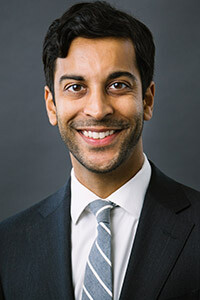
Barry A. Sanders ’70 was the first one in—and he had a head start. As an international law partner at Latham & Watkins, Sanders helped ink one of the 1984 Games’ earliest sponsorship deals (with Coca-Cola). After that, he never really stopped working on the Olympics; he chaired the Southern California Committee for the Olympic Games, tried to bring the Games back to Los Angeles in 2012 and 2016, and initiated the bid for 2024.
When Garcetti took office as mayor on July 1, 2013, he found a letter to the U.S. Olympic Committee on his new desk:
“I am pleased to write to you on behalf of the City of Los Angeles as one of my first official acts as Mayor… to express my support for bringing the Games to Los Angeles in 2024.”
Sanders drafted that letter. Garcetti, who had previously participated in the nascent 2024 efforts as city council president, signed it. To the right of his scrawl, he drew the Olympic rings, wrote LA 2024 above them, and underlined it all for extra emphasis.
The rest of the Yale-trained legal team came into place organically.
Garcetti tapped Casey Wasserman to chair the city’s bid committee, with Sanders serving in an advisory role. Wasserman then brought on New York-based Proskauer partner Jon H. Oram ’99, who has made a career out of mega sports deals, to serve as the bid committee’s primary outside counsel.
Kumar, who had worked in private practice and as a special assistant for foreign affairs and defense at the U.S. Senate, came third, joining Garcetti’s staff about a month into the mayor’s term. At first, he worked on “a regular political and policy portfolio,” he says. But, as the Olympics became a larger and larger share of his work, he was eventually designated “chief Olympics officer.”
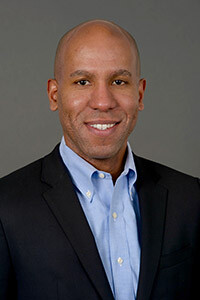
But we’re getting ahead of ourselves.
Because, first, of course, Los Angeles lost the domestic bid.
The team leading the city’s USOC bid process in 2014 was “a small handful of us,” Kumar recalls. Everyone had other, primary jobs. They worked, mostly on nights and weekends, off a shared Google document and carried a portable printer to produce the various deliverables required by the USOC.
“It was really a rag-tag effort,” Kumar says.
Still, they felt—alongside competing U.S. cities San Francisco, Boston, and D.C.—that they had the best pitch. After all, Los Angeles had strong public support for the Games, wouldn’t need to build a single permanent venue, and had hosted two successful Olympics in the past (the profits of the 1984 Games helped establish a foundation that continues to this day to provide funding for youth sports programs in the region).
People in Los Angeles love the Olympics, and “not just the money” that continues to pour out in their name, Sanders says. “The tone of those Games—the pleasure of those Games—it was a shining moment in the city’s history, and one that we felt could be duplicated.”
And, yet, in January 2015, the USOC chose Boston, where, according to polls, less than half of registered voters supported the idea of serving as host city.
Losing was “devastating,” Kumar says. “To compete and lose when you actually think you have something special is doubly devastating.”
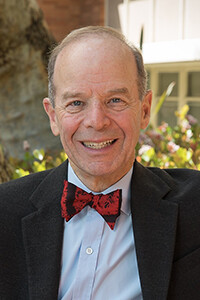
“We kept saying, ‘I really hope the next lunch is a working lunch,’” Kumar laughs.
Sure enough, in July 2015, Boston officially withdrew its bid after proving unable to quiet the naysayers. Los Angeles was the immediate frontrunner but had only about 30 days to meet the USOC’s deadline for submitting a city to the International Olympic Committee (IOC).
“I remember thinking, ‘We need a GC, and we need a GC quickly,’” Oram recalls. “I said to my wife, ‘You know who would be perfect for this? Brian.’”
(Oram’s wife Lisa Rubin ’04, Nelson, and Nelson’s wife Lane Dilg ’04 graduated together from Yale Law School. Kumar is also married to an alumna: Kathryn Eidmann ’09.)
Oram knew Nelson was interested in the Olympics effort generally. He also knew Nelson might consider leaving the California Department of Justice because state Attorney General Harris had announced her decision to run for U.S. Senate earlier that year. Oram was on vacation in Montauk with his family, but he called Nelson immediately to gauge his interest.
“I’ll never forget,” Oram says. “My wife took the kids in for a frozen yogurt, and, when they came back ten minutes later, I had convinced Brian to come on board.”
“I scurried over,” Nelson agrees, laughing.
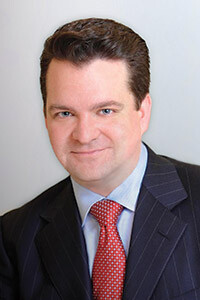
“I don’t know whether it’s unprecedented or not,” Oram says. “If there was precedent that we could have relied on for guidance, we certainly didn’t know about it.”
But the team wasn’t across the finish line yet; in the international bid process, the race was just beginning, with LA facing off against Paris, Hamburg, Rome, and Budapest.
Sanders—the only one of the four Yale Law School alumni with previous Olympic bid experience—knew what they were in for as they began to compete for the votes of about one hundred IOC members.
“The most exciting and interesting competition in the Olympics is not on the field,” he says. “It’s the competition for the Games. But you have to have the same attitude. If you go up to the starting line at the 100-meter dash and look to your left and right, either one of those people could beat you even if you’re very, very fast.”
As Kumar explains, “it’s like a political campaign where you can meet every single voter,” but the voters “speak different languages, live on different continents, and have different views of the Olympic Games and which sports are more important.”
In 2015, 2016, and 2017, respectively, Hamburg, Rome, and Budapest withdrew their bids. This was good news for Los Angeles and Paris, but bad news for the IOC, which had faced a similar problem before the 1984 Games—a lack of willingness from the world’s cities to take on the enormous risk of hosting a global sporting event like the Olympics.
“There was concern about the bidding process and whether cities would continue to bid,” says Oram.
(IOC President Thomas Bach put it this way: “In Germany, we have a saying…‘It’s better to have a small bird in your hand than a big bird on the roof.’ Here, we have two big birds in our hands, and I cannot see any small bird on the roof.”)
Oram, Nelson, and Kumar took the lead in exploring whether hosting the 2028 Games was a viable option for the city of Los Angeles.
“We were the only three lawyers involved” on that issue, Oram says. “That was the point when the three of us were working most closely.”
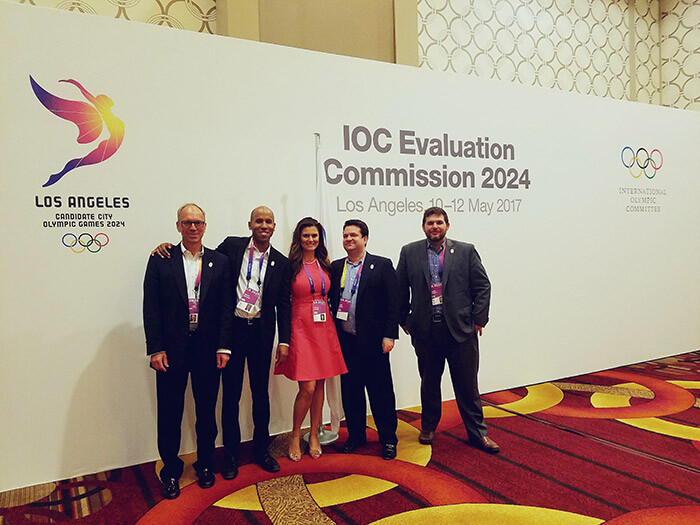
The city had lined up funding and partners for a seven-year schedule—the time between the expected announcement of the 2024 host city and the 2024 Games. Now, they had to find ways to stretch that funding—and relationships with venue partners like the Staples Center, the University of California Los Angeles, and the University of Southern California, among others—over eleven years. They were confident they could do so. Still, they wanted some concessions from the IOC.
“The mayor did not want to have to wait eleven years for the Olympics to leave a legacy on the social and cultural fabric of LA,” Kumar says. “He wanted kids who are 6 and 7 today to start enjoying that legacy.”
Under the agreement Kumar, Nelson, and Oram helped negotiate, the IOC agreed to its largest-ever contribution to the Games (about $2 billion), to allow Los Angeles to start using $160 million of that to fund youth sports programs in advance of 2028, and to accelerate the delivery of other payments.
“We spent a lot of time worrying about how people would react when we announced we were pursuing 2028 instead of 2024,” Oram says. “Instead, the reaction was almost universally positive. In many ways, that just gives the city more time to prepare. We’ll probably all be in driverless cars by then.”
Oram, who has represented Major League Baseball in connection with the Los Angeles Dodgers’ bankruptcy proceedings and the MLS in talks with David Beckham, says the 2024-turned-2028 Olympic bid process was “about as dramatic” as anything he’s ever worked on.
And yet, according to Christopher G. Sullivan, the USOC’s managing director of bids and protocol, the Los Angeles bid team—including Sanders, Kumar, Oram, and Nelson—stands out for precisely the opposite reason.
“For all of LA’s team, you could use the word ‘quality,’” says Sullivan, who has worked for the USOC since 1997. “And, quite frankly, the term ‘no drama.’”
Even after LA was beat out by Boston, Sullivan says, Los Angeles’ team “never stopped believing LA was the right choice.”
“To Casey [Wasserman]’s credit and leadership style, they didn’t all run away from the project,” he says. “When there were challenges with Boston, there was never a question of ‘now what do we do?’ It was a very elegant move to be able to go straight to LA. And that’s a testament to the people there and the job they did.”
Garcetti speaks highly of his team, too. He says Sanders has been “keeping the Olympic flame alive in Los Angeles for more than thirty years” and was a “good friend and trusted advisor” during the bid process.
“Good legal counsel is critical to any major initiative,” he says, adding that “the relationship of trust and familiarity between Manav, Brian, and Jon helped ensure that every aspect of our bid was legally bulletproof, and that every arrangement with the USOC and IOC protected the interests of our city and its taxpayers.”
John Harper, the chief operating officer of the bid committee (and now organizing committee) said Kumar, Nelson, Oram, and Sanders brought complementary skills to the table: Sanders was an Olympic bid veteran; Oram had experience in the private sector, generally, and sports, specifically; and Kumar and Nelson had all manner of government relations covered.
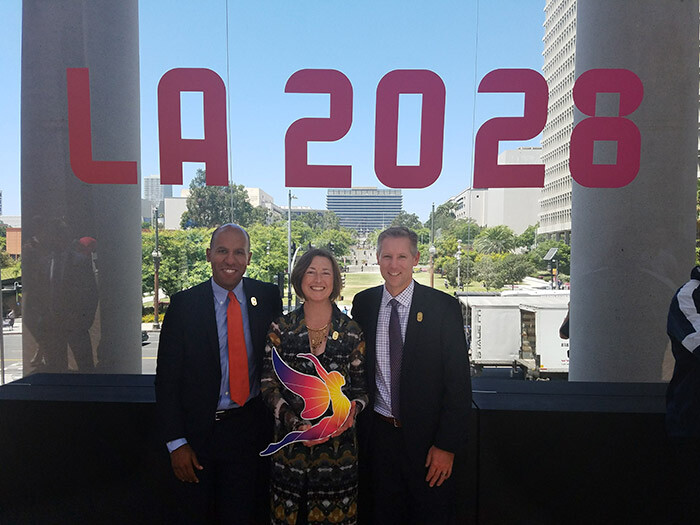
Because the Olympics are in some ways the ultimate public-private partnership, the job demanded those diverse skillsets, Kumar says.
“Any time you’re trying to do something of this scale, you need everybody to do their part,” he says. “Sometimes, everybody is doing their part in their own lane and it adds up to something great. Sometimes, you have the luxury of bringing a lot of these different lanes under a single tent. That’s certainly what our bid for the Olympics was.”
Harper says, “it couldn’t have been a higher-functioning team. They all clearly understood their roles but were also very accepting of other people’s perspectives.”
Their strengths stood out most, Harper adds, when the obstacles began to appear—Boston’s initial selection, Boston’s withdrawal, and the complicated possibility of a dual 2024/2028 award.
“They were solution oriented,” Harper says. “That optimism was felt by people on the other side of the table.”
The way the Yale Law School graduates came together to work on the Olympics cannot be explained merely through a shared love of sports (For one thing, Sanders doesn’t love them. He says he is “sort of eccentric in terms of how much I don’t enjoy games.”).
Instead, they each were drawn to the work because of its public-service nature, an interest they all attribute in some way to their time on campus.
“Yale Law School is the kind of place that really values the tradition and importance of public service,” says Kumar. “That’s how you end up having these attorneys who are doing different things attracted to a big project like this—not only because it’s interesting, fun, complex work but because, ultimately, the Olympics and Paralympics are a civic project for the city.”
Oram agrees.
“Whether you’re an academic or in private practice like I am or working for the government, Yale Law School instills in you an ethos of public service,” he says.
For Nelson, the call to be a part of the effort was strong enough to pull him onto the team even when it was still not clear Los Angeles would win the domestic bid, let alone the actual Games.
“I certainly did not think I’d end up as a sports lawyer at this stage in my career,” he says. But “as a government person, a policy person, as someone who cares deeply about civic choices and decision making, it seemed like a very unique opportunity—and it has been a unique opportunity—to be part of something positive for a generation.”
LA, which hosted the first women’s Olympic marathon in 1984, has now embarked on a sort of marathon of its own. No city has ever waited eleven years to host the Games. A year has passed since Nelson sent that one word email to Kumar in celebration of what they had accomplished with Oram, Sanders, and the rest of the team put together by Garcetti and Wasserman. But ten more years remain.
Nelson still helms the legal work for the bid committee-turned-organizing committee, now as the chief legal officer; Oram is still involved in his role as outside counsel; and Sanders says he makes himself available as needed. But Kumar left the mayor’s office in the fall of 2017 to take a vice president and chief of staff position at AECOM (the company was the lead design firm behind the 2028 bid and remains involved, but Kumar does not have an Olympics-related role).
“I love this project, and I love the team that’s on it,” Kumar says. “I’ll try to stay involved as much as I can. I can’t wait for when the Games finally happen, whether I have an actual role or am just in the stands with my family.”
In the meantime, the work of making it happen—including translating existing agreements with partners into long-term contracts and, eventually, securing sponsorships—continues.
“For better or worse, the lawyers are really busy,” Nelson says. “I miss Manav. But it’s fun.”
by Rebecca Beyer
